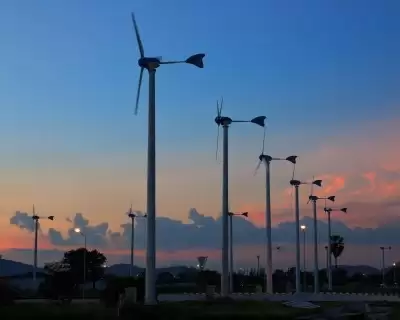Introduction Carbon markets have emerged as a cornerstone in the global fight against climate change, providing a mechanism to reduce greenhouse gas emissions while fostering innovation and sustainable growth. As governments, corporations, and individuals increasingly commit to achieving net-zero emissions, the future of carbon markets is poised for significant evolution. This article explores the trends…
Category Archives: Carbon Credits
Introduction The global shift toward sustainability has brought electric vehicles (EVs) into the spotlight. As more individuals and businesses adopt EVs to reduce their carbon footprint, the concept of EV carbon credits has emerged as a powerful tool to accelerate the green transition. But what exactly are EV carbon credits, and why do they matter?…
Introduction In the face of the climate crisis, innovative solutions for sustainable development are becoming increasingly vital. Among the pioneering organizations leading this charge is the I-TRACK Foundation. This foundation is dedicated to accelerating the transition to a more sustainable world through innovative technologies, community-based projects, and initiatives that empower individuals and companies to track,…
Introduction In today’s rapidly changing climate, carbon credit markets have emerged as crucial tools for companies, governments, and organizations to offset their greenhouse gas (GHG) emissions. One of the cornerstones of an effective carbon credit system is the accurate measurement, reporting, and verification (MRV) of emissions reductions. MRV technology plays a pivotal role in ensuring…
Introduction In the global fight against climate change, the Paris Agreement plays a pivotal role. A significant provision of the Agreement, Article 6, aims to promote international collaboration on reducing greenhouse gas (GHG) emissions. Among its three key mechanisms, Article 6.4 stands out for its role in enabling a global carbon market through the trading…
Introduction The transition to a sustainable future is becoming a critical focus for governments, businesses, and individuals worldwide. Among the many tools driving this transition, carbon credits are emerging as a pivotal mechanism. These credits, designed to offset carbon emissions, have sparked a surge in interest among investors looking to make an environmental impact while…
As climate change accelerates, governments, businesses, and individuals are increasingly looking for ways to reduce their carbon footprint. Among the solutions gaining momentum are carbon markets, which provide a mechanism for offsetting greenhouse gas (GHG) emissions. These markets fall into two broad categories: voluntary carbon markets (VCMs) and compliance markets (CMs). While both aim to…
Introduction Biodiversity encompasses the variety of all living organisms, from plants and animals to fungi and microorganisms. This diversity forms the ecosystems that provide us with essentials like clean air, water, food, and medicine. Yet, our planet is facing a biodiversity crisis due to habitat destruction, climate change, pollution, and overexploitation of resources. To address…
Introduction Carbon credits and International Renewable Energy Certificates (I-RECs) are powerful tools for combating climate change, enabling companies and individuals to offset emissions and support renewable energy projects. However, as these markets grow, they face challenges related to additionality, permanence, transparency, and accountability, which impact their effectiveness and public trust. This article delves into these…
Introduction As businesses and countries increasingly strive to reduce their environmental impact, carbon credits and International Renewable Energy Certificates (I-RECs) have become essential tools in the global fight against climate change. By purchasing these credits and certificates, organizations can offset their emissions and demonstrate commitment to sustainability. However, the economics of these markets are complex,…
















